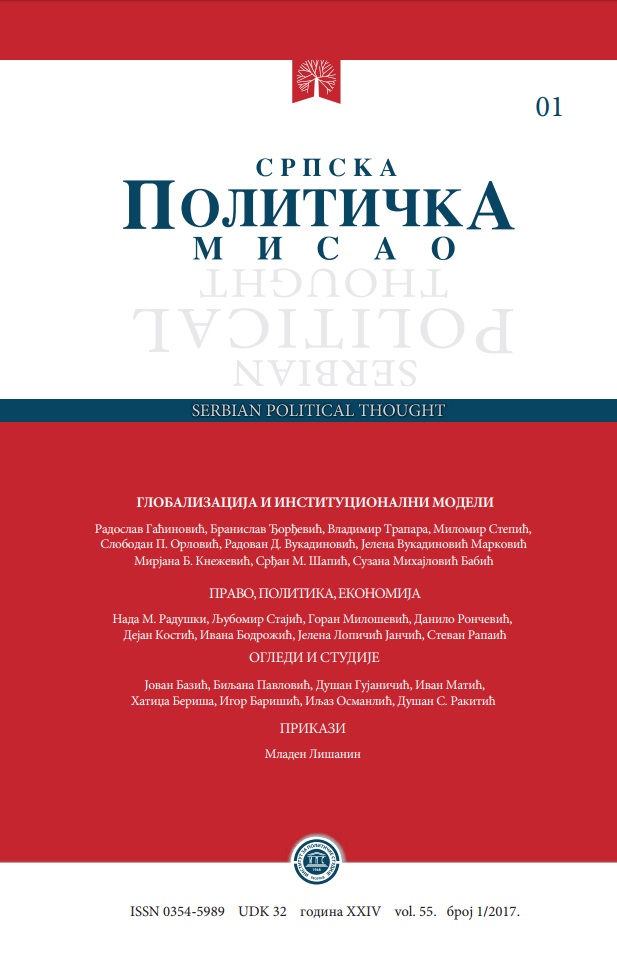Концентрациони логор Јасеновац и кршење међународног права
Jasenovac Concentration Camp and Violation of International Law
Author(s): Jelena Đ. Lopičić JančićSubject(s): International Law, Human Rights and Humanitarian Law, Law and Transitional Justice, History of the Holocaust
Published by: Институт за политичке студије
Keywords: Jasenovac; so-called. Independent State of Croatia; International Law; Ustasha; Serbs; Jews; Romani; Catholic Church; Vatican
Summary/Abstract: This article discuses the international legal aspect of Jasenovac concentration camp. Jasenovac was the largest concentration camp in occupied Yugoslavia during Second World War and has functioned since its establishment in August 1941 until its closure in April 1945. This camp was also known as death camp because most of the inmates died due to murdering them or from various diseases and illness since the conditions in the concentration camp were terrible. The number of killed inmates in Jasenovac concentration camp, that consisted of Serbs, Jews, Romani, anti-fascists and other persons who did not accept the Ustasha’s government, was never precisely determined. Estimates differ depending upon the authors but total number of inmates that died in Jasenovac concentration camp was not less than 600,000. We believe that Jasenovac concentration camp is not enough treated in our literature from international legal aspect so that is one of the reasons, beside the above mentioned that we wrote this article. The primary responsibility for the existence of concentration camps in Croatia have Nazi Germany and Fascist Italy that have committed aggression against Kingdom of Yugoslavia and occupation of Kingdom Yugoslavia, and formed in the occupied territory quisling state of so-called Independent State of Croatia. By these acts they severely violated number of international conventions on the laws of war. Independent State of Croatia issued a series of racist and Nazi laws and decrees on the basis of which the physical liquidation of Serbs, Jews, Romani, antifascists and those who did not accept the Ustasha government was executed. In this article were applied historical legal method, comparative legal method and positive legal method. Since there is an obvious attempt of the defeated Nazi and Fascist parties on the revision of the Second World War, including the minimization of status and victims of Jasenovac, the aim of this article is besides other issues to oppose such a position from international legal aspects.This is important and significant for the younger generation who are not familiar with this issue, so this is an opportunity to learn about this issue from international legal aspect.
Journal: Српска политичка мисао
- Issue Year: 2017
- Issue No: 1
- Page Range: 229-253
- Page Count: 25
- Language: Serbian

